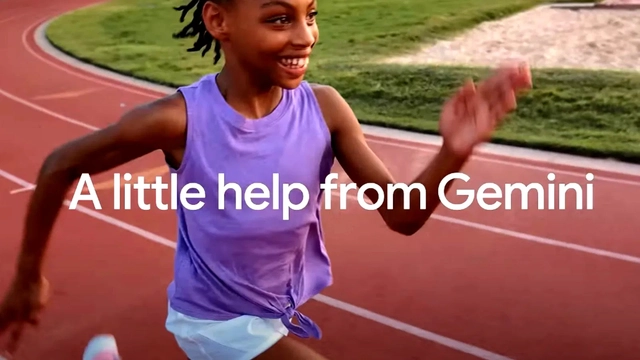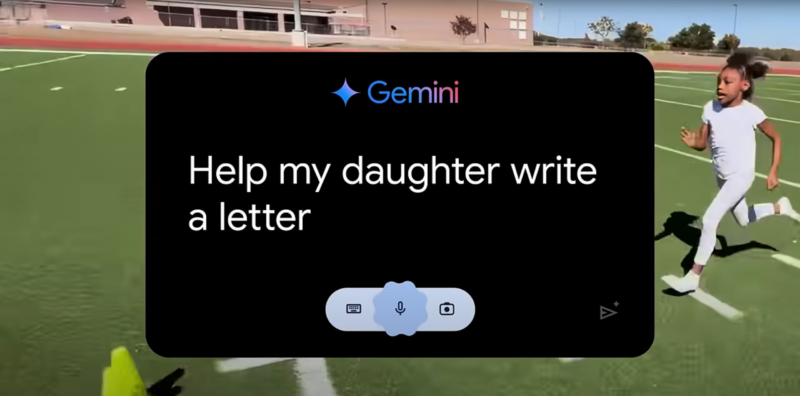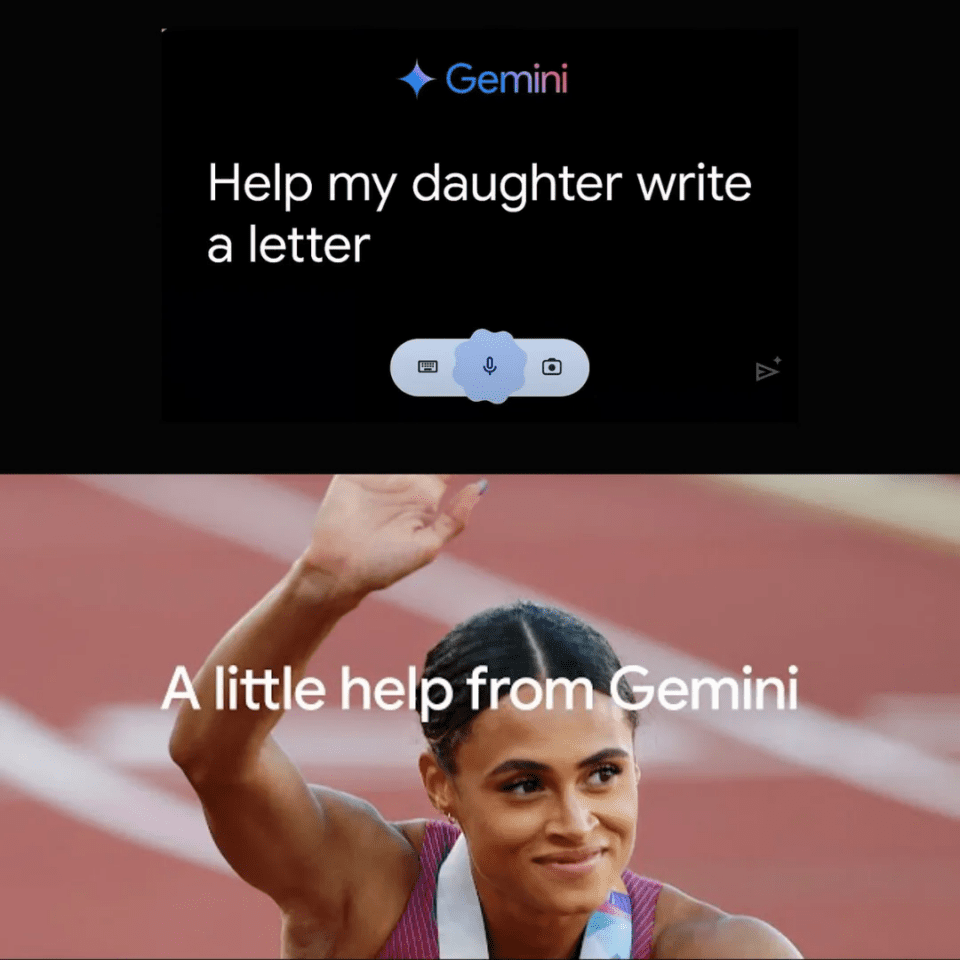“Dear Sydney”: Google Turns an Emotional Idea into an Emotionless Ad
“Dear Sydney” is a new Advertising Campaign launched by Google on July 26 to support the USA team at the 2024 Paris Olympics. The ad is inspired by a very touching theme: the efforts of a father on the journey to help his daughter reach her dream.
From that idea, the Video for “Dear Sydney” began with a father telling the story of how his daughter had always loved running since she was a child. He thought that his daughter was just following in his footsteps because he was also a runner. However, he later discovered that his daughter wanted to become a professional hurdler and that Olympic athlete Sydney McLaughlin-Levrone was her role model. So the father began a journey to help his daughter train to achieve her dream.
But what’s worth mentioning here is that the father used Google’s AI tool Gemini to find a way to help his daughter practice. And he continued. Use Gemini to write a letter to your girl’s idol instead of writing it yourself write: “Please help my daughter write a letter telling Sydney McLaughlin-Levrone how inspiring she is and be sure to mention that she plans to break her world record… one day.”
From a story full of emotional elements, “Dear Sydney” suddenly became mechanical and emotionless when Google tried to cram Gemini’s features into the ad. Immediately viewers left a series of critical comments under the video, forcing Google to temporarily disable the comment section of this ad on YouTube.
Google’s AI Ad Blunders in ‘Dear Sydney’
It is easy to see that the “Dear Sydney” ad was condemned by viewers because Google made very basic mistakes when conveying messages about AI to consumers.
#1. Authenticity, Emotion are completely gone
From the initial concept, it was clear that this campaign was meant to be emotional, using a father-son love story to touch the hearts of viewers. But in the end, those emotions were written by a completely emotionless technological tool.
Meanwhile, it is clear that a letter written by the father or daughter, although not as smooth, will bring more genuine emotions than a letter written by someone with a few lines of description from the father. Google’s overstuffing of Gemini’s characteristics has unintentionally severely damaged the original idea of the ad.
#2. Human creativity and learning ability are eliminated
Although consumers have become more friendly to AI in recent years, it is clear that they still have many concerns about the negative effects of AI. Especially the risk of AI replacing humans in areas such as creativity or learning. On the other hand, as we increasingly rely on AI for creativity or learning, it is not difficult to see a future where rich human thinking and culture are eroded.
So far, brands have been very limited in using AI-generated content. Meanwhile, Google’s campaign has made this basic mistake.
The act of using AI to replace humans in writing a letter in the “Dear Sydney” advertising campaign is making users think that AI will gradually replace humans in writing content. People even have to depend on AI to write a letter instead of writing it themselves with their own emotions and words.

#3. It can create a false expectation when deifying AI
In terms of accuracy, this ad also has many shortcomings. AI tools like Gemini can indeed provide users with information such as how to exercise by collecting available data on the internet. However, the situation of using Gemini to write a letter to the father is a different story. Because to write a letter according to the father’s requirements, the AI tool must be able to accurately express a person’s emotions.
It is undeniable that AI has the ability to learn quite well the writing style or vocabulary of an individual to create a certain content. At first glance, this content is similar to what humans write, but in fact it lacks an important element, which is the emotional depth of an individual. Because emotions are a factor that changes constantly according to different times and circumstances – that is something that AI cannot learn. Therefore, Google’s actions may inadvertently create for viewers a somewhat unrealistic expectation about the capabilities of AI.

In fact, Google is not the first Brand to make these basic mistakes. Overusing AI capabilities in advertising has made many brands pay a high price when thousands of consumers turn away.
Take the recent Toys “R” Us ad, for example. OpenAI helped Toys “R” Us Studios and Native Foreign bring an idea to life in just a few weeks, condensing hundreds of repetitive shots into a few dozen. The commercial was created almost entirely with Open AI’s Sora tool. As a result, many netizens expressed “disappointment” and “frustration” with the ad, calling it the most “soulless” and “vulgar” ad ever.
Before that, the famous toy brand Lego also received a storm of unfortunate criticism when using AI to create promotional images for its toy products. Meanwhile, Lego is a game that promotes human creativity.
Epilogue:
Overall, Google’s “Dear Sydney” has touched on the biggest concerns of users around the world about AI, which is the replacement of humans in many fields. In addition, this ad also makes many viewers have incorrect images of the actual capabilities of AI. The 3 basic mistakes mentioned above by Google are also 3 important notes for brands when using AI in advertising.
Comment Policy: We truly value your comments and appreciate the time you take to share your thoughts and feedback with us. Note: Comments that are identified as spam or purely promotional will be removed. To enhance your commenting experience, consider creating a Gravatar account. By adding an avatar and using the same Email here, your comments will feature a unique and recognizable avatar, making it easier for other members to identify you. Please use a valid email address so you can receive notifications when your comments receive replies.
